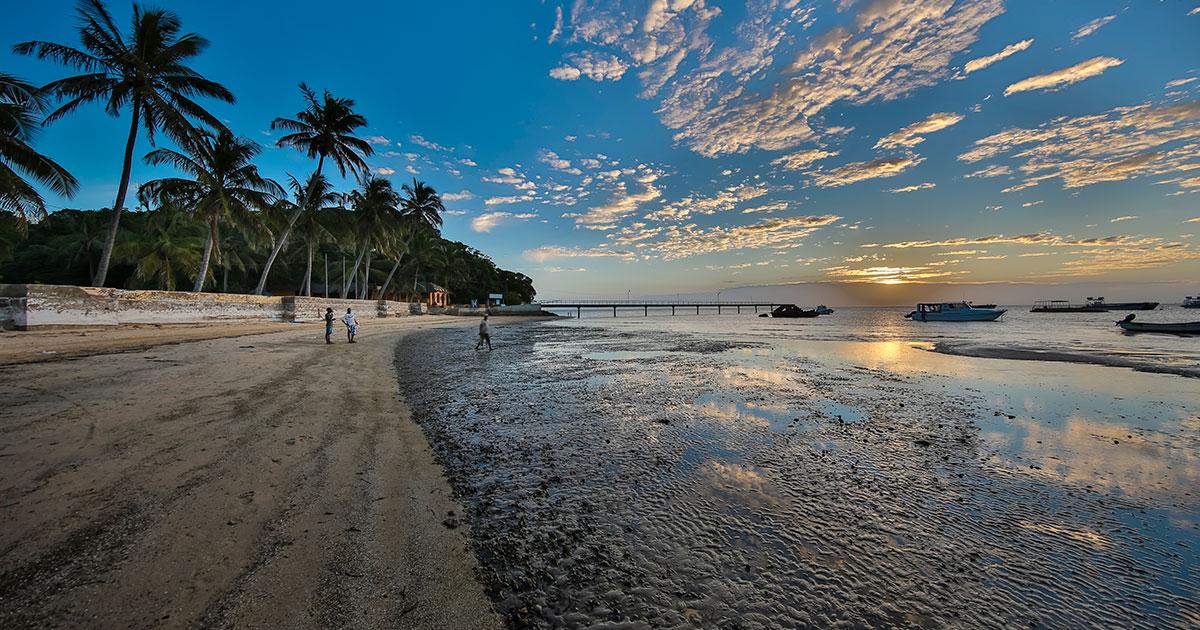- Mozambique is expected to become the world’s third largest natural gas exporter
- UN Environment, supported by the Government of Norway, launched a report to strengthen Mozambique’s environmental management in the oil and gas sector
Mozambique is expected to become the world’s third largest natural gas exporter by 2023, bringing a projected $39 billion to the Mozambican economy over the next 20 years and creating over 700,000 jobs by 2035.
Finding substantial reserves of oil and natural gas can offer significant opportunities for the social, economic and political development of any country. However, without adequate environmental management, oil and gas operations can have lasting social and environmental impacts such as oil pollution and public health risks.
 Gurue, Mozambique - December 29, 2011: Tea plantation workers sorting out tea leaves at a Gurue tea plantation
Gurue, Mozambique - December 29, 2011: Tea plantation workers sorting out tea leaves at a Gurue tea plantation
In view of the impending increase in oil and gas exploration, the Government of Mozambique, in collaboration with UN Environment and Norway’s Oil for Development Programme, launched a report to strengthen Mozambique’s capacity to address environmental management challenges related to its oil and gas sector. The report’s 38 recommendations form a roadmap for the successful management of this important and rapidly developing sector.
At the report’s launch event in Maputo on 15 March, the Permanent Secretary of the Ministry of Land, Environment and Rural Development Sheila Santana Afonso underscored the Government’s commitment to maintain social and environmental safeguards in the development of hydrocarbon resources. “We must ensure that we deliver sustainable development benefits, for today’s generation and the next,” she added.
Marcoluigi Corsi, the Acting Resident Coordinator of the United Nations in Mozambique, who also delivered Opening Remarks, recognized the Government’s progress in strengthening environmental management in the country’s oil and gas sector, with support from partners such as Norway and The World Bank. “The report lays out what more could be done in order to protect the environment, on which people depend for their livelihoods,” he said.
The launch event attracted over 50 participants from multiple Ministries, international development partners, academia, and the private sector including major oil and gas companies operating in the country, namely ExxonMobil, Anadarko and Sasol.
The report concluded that some of Mozambique’s most urgent challenges are the need to update the country’s oil spill preparedness and response strategy for both land and sea, and chemicals and waste management associated with the industry, given the projected expansion of the sector over the next decade. Other important challenges highlighted in the report relate to resources and technical capacity within MITADER, as well as institutional coordination across Ministries.
During the panel discussion, Marianne Angvik, Adviser to the Embassy of Norway stressed Norway’s strong commitment to support the Government of Mozambique, stating that “responsible petroleum management is essential to protect people’s livelihoods and achieve poverty reduction.” Paulo Jorge Sithoe, Environmental Specialist at the World Bank, highlighted the importance of developing more specific regulations and operational procedures to improve Government coordination and address overlapping roles and responsibilities.
“While the Government of Mozambique can address some of the recommendations internally, broad-based support from other partners including the private sector and academia is key,” said Marisol Estrella, Coordinator, UN Environment–Oil for Development Partnership, in her concluding remarks. “This report provides a roadmap for effectively working together and supporting Mozambique to achieve its sustainable development priorities.”
UN Environment and Norway are cooperating under the Environment Pillar of Norway’s Oil for Development Programme to enable countries to access and apply environmental management best practice and reduce risks of environmental pollution and degradation. The OfD Programme is operating in 14 countries, including Mozambique.
Story by UN Environment





